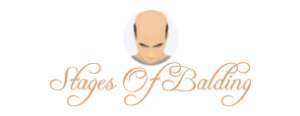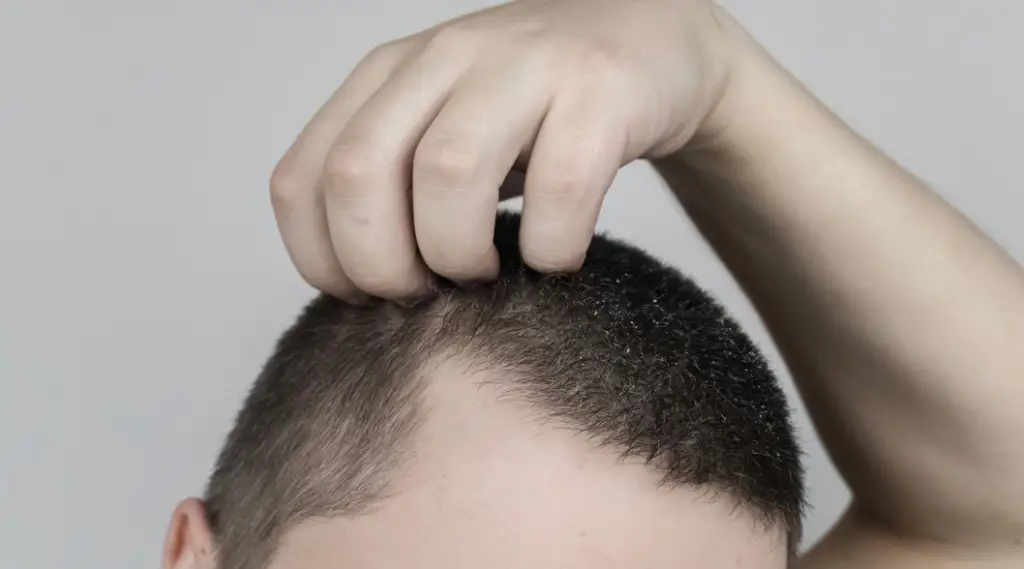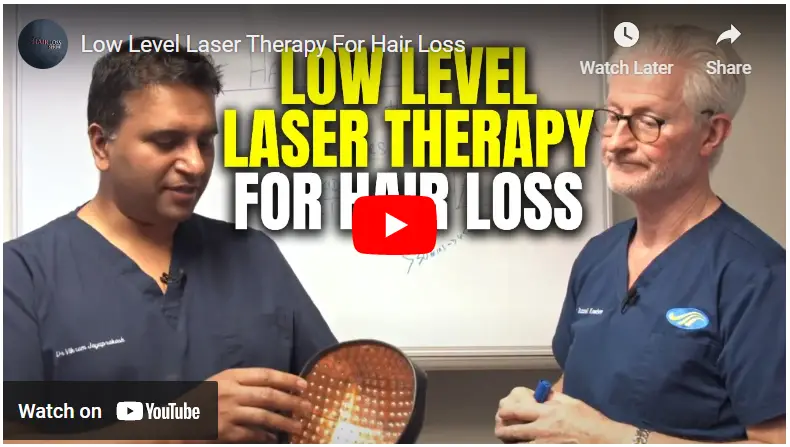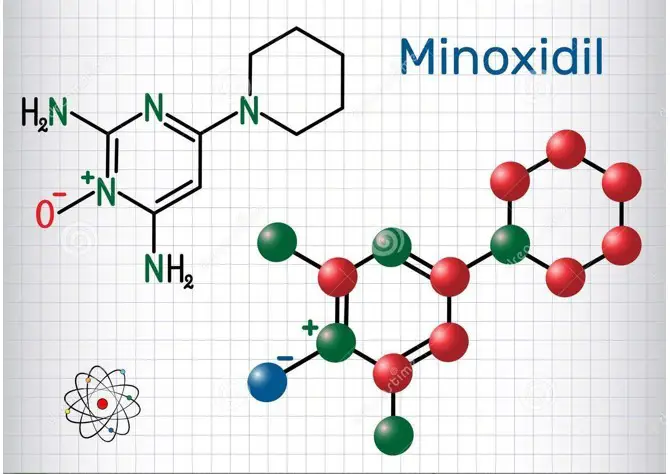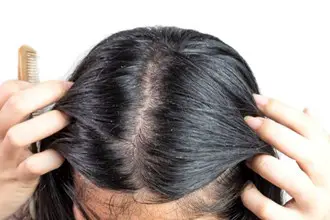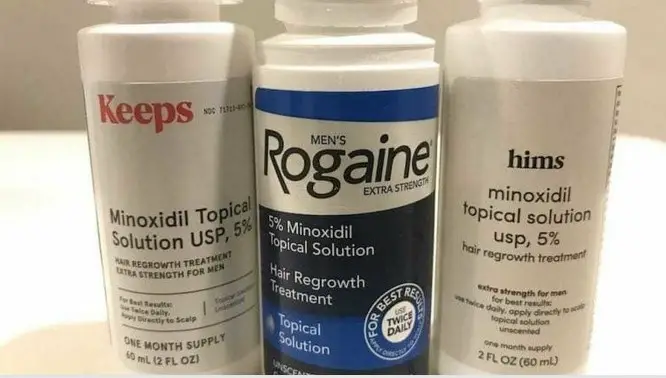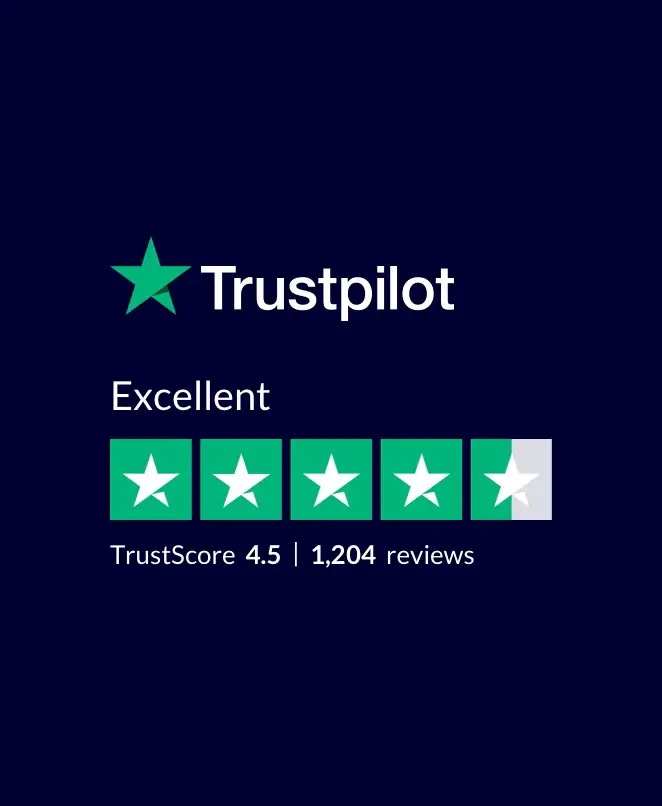Welcome to our comprehensive guide on minoxidil itchy scalp. If you’ve been using minoxidil for hair growth, you might have experienced an itchy scalp as a side effect.
This is a common issue, but it can be quite bothersome and may even make some people consider stopping their treatment. But don’t worry, there are ways to manage this side effect and continue your journey towards thicker, fuller hair. In this guide, we’ll explore why minoxidil can cause an itchy scalp, how to alleviate the itch, and what alternatives are available for those with sensitive skin. So, let’s dive in and learn more about minoxidil for sensitive scalp.
If you’re new to the world of hair loss treatments, you might want to start with our article on Minoxidil and Biotin: A Powerful Combo for Hair Growth. It provides a great introduction to these two popular hair growth aids.
Takeaways:
- Minoxidil is a widely used treatment for hair loss, but it can cause an itchy scalp in some individuals. This is often due to ingredients like propylene glycol and alcohol, which can cause skin irritation and dryness.
- If you’re experiencing an itchy scalp from minoxidil, there are several strategies you can use to manage this side effect. These include keeping your scalp moisturized, trying a different formulation of minoxidil, applying the product correctly, using over-the-counter remedies, and consulting a healthcare professional.
- There are alternatives to minoxidil if it’s causing an itchy scalp. These include minoxidil foam, which typically does not contain propylene glycol, and natural remedies like biotin and saw palmetto.
- If you’re experiencing severe itching or other symptoms like redness, swelling, or difficulty breathing, it’s important to seek medical advice immediately as these could be signs of an allergic reaction.
- Everyone’s experience with minoxidil is unique. What works for one person may not work for another. It’s important to stay informed, explore your options, and seek professional advice to find the best solution for you.
Understanding Minoxidil and Its Uses
Minoxidil is a popular over-the-counter medication known for its effectiveness in treating hair loss. Originally developed as a treatment for high blood pressure, it was discovered that one of its side effects was unexpected hair growth. This led to the development of topical minoxidil solutions and foams specifically designed to combat hair loss.
Minoxidil works by prolonging the growth phase of hair follicles, leading to longer, thicker hair. It’s particularly effective in treating androgenetic alopecia, also known as male or female pattern baldness. However, like any medication, minoxidil can have side effects, one of which is an itchy scalp.
The exact reason why minoxidil causes an itchy scalp isn’t fully understood, but it’s believed to be due to the alcohol content in the solution, which can dry out the scalp. This dryness can lead to itching and flaking, similar to dandruff. Some people may also have an allergic reaction to minoxidil or one of its other ingredients, leading to itchiness and irritation.
Despite these potential side effects, minoxidil remains a popular choice for many people dealing with hair loss. Its benefits often outweigh the discomfort of an itchy scalp, especially since there are ways to manage this side effect.
If you’re considering using minoxidil, it’s important to understand how it works and what to expect. This includes knowing about potential side effects like an itchy scalp and how to manage them. In the next sections, we’ll delve deeper into why minoxidil can cause an itchy scalp and provide practical tips on how to alleviate this discomfort.
Before you start your journey with minoxidil, it’s worth exploring the differences between the two main forms of this medication: liquid and foam. Our article on Minoxidil Foam vs Liquid: Which Is Better? provides a detailed comparison to help you make an informed decision.
Remember, while minoxidil can be a powerful tool in your hair growth journey, it’s not the only option out there. There are other treatments and lifestyle changes that can also contribute to healthier hair. Check out our article on Minoxidil and Dermarolling: A Winning Combo for Hair Growth to learn about how combining minoxidil with microneedling can enhance your results.
Why Does Minoxidil Cause an Itchy Scalp?
Minoxidil is a powerful tool in the fight against hair loss, but like all medications, it can come with side effects. One of the most common is an itchy scalp. But why does this happen? Let’s delve into the science behind it.
The exact cause of minoxidil-induced itchiness isn’t fully understood, but there are a few theories. One of the main culprits is believed to be propylene glycol, a common ingredient in many topical solutions, including minoxidil. Propylene glycol is known to cause skin irritation in some people, leading to symptoms like dryness, itching, and flaking.
Another possible cause is the alcohol content in minoxidil solutions. Alcohol can be drying to the skin, which can lead to itchiness and flaking. This is especially true for people with sensitive skin or pre-existing scalp conditions like seborrheic dermatitis or psoriasis.
In some cases, the itchiness could be a sign of an allergic reaction to minoxidil or one of its ingredients. Symptoms of an allergic reaction can include redness, swelling, and severe itching. If you suspect you’re having an allergic reaction, it’s important to stop using the product and seek medical advice.
While these side effects can be uncomfortable, they’re usually mild and manageable. In the next section, we’ll explore some practical tips and remedies to help you alleviate the itch and continue your minoxidil treatment comfortably.
If you’re experiencing an itchy scalp from minoxidil, you’re not alone. Many people have gone through the same experience and found ways to manage it. Our article on How to Stop Minoxidil Without Losing Hair provides some useful tips and insights from people who’ve been in your shoes.
Remember, everyone’s experience with minoxidil is unique. What works for one person might not work for another. It’s all about finding what works best for you. If you’re looking for more personalized advice, consider consulting with a healthcare professional or a hair loss specialist.
In the meantime, don’t let an itchy scalp discourage you from your hair growth journey. With the right knowledge and tools, you can manage this side effect and continue to reap the benefits of minoxidil. Check out our article on Minoxidil for Receding Hairline: Does It Work? to learn more about how minoxidil can help in different stages of hair loss.
How to Alleviate Minoxidil-Induced Itchy Scalp
Experiencing an itchy scalp from minoxidil can be uncomfortable, but don’t worry, there are several strategies you can use to alleviate the itch. Here are some practical tips:
Switch to Minoxidil Foam
If you’re using a minoxidil solution and experiencing itchiness, consider switching to a foam formulation. Minoxidil foam usually doesn’t contain propylene glycol, which is often the culprit behind the itch. Our article on Minoxidil Foam vs Liquid: Which Is Better? provides a detailed comparison to help you decide.
Maintain Proper Scalp Care and Hygiene
Keeping your scalp clean and moisturized can help alleviate itchiness. Use a gentle, hydrating shampoo and consider adding a scalp moisturizer to your routine. Avoid hot showers, as they can dry out your scalp.
Try Over-the-Counter Remedies
There are several over-the-counter products that can help soothe an itchy scalp. These include hydrocortisone cream, antihistamines, and medicated shampoos. Always follow the manufacturer’s instructions when using these products.
Consult a Healthcare Professional
If your symptoms are severe or persist despite trying the above remedies, it’s important to seek medical advice. A healthcare professional can provide personalized advice and may prescribe stronger treatments if necessary.
Remember, everyone’s experience with minoxidil is unique. What works for one person might not work for another. It’s all about finding what works best for you. If you’re looking for more personalized advice, consider consulting with a healthcare professional or a hair loss specialist.
In the meantime, don’t let an itchy scalp discourage you from your hair growth journey. With the right knowledge and tools, you can manage this side effect and continue to reap the benefits of minoxidil.
If you’re interested in learning more about the different types of minoxidil available and how they can affect your scalp, check out our article on Minoxidil 15%: A Stronger Solution for Hair Loss. It provides a detailed overview of this higher-strength minoxidil and its potential benefits and side effects.
Minoxidil Allergic Reaction Symptoms
While minoxidil is generally safe for most people, some may experience an allergic reaction to the medication. It’s important to recognize the symptoms of an allergic reaction so you can take appropriate action. Here’s what to look out for:
Skin Irritation
One of the most common symptoms of an allergic reaction to minoxidil is skin irritation. This can include redness, rash, or swelling at the application site. If you notice these symptoms, stop using the product and consult a healthcare professional.
Severe Itching
While mild itching can be a common side effect of minoxidil, severe or persistent itching may be a sign of an allergic reaction. If the itching is intense, doesn’t go away, or is accompanied by other symptoms, seek medical advice.
Difficulty Breathing
In rare cases, an allergic reaction to minoxidil can cause difficulty breathing. This is a serious symptom that requires immediate medical attention.
Swelling of the Face, Lips, Tongue, or Throat
Swelling in these areas can be a sign of a severe allergic reaction known as anaphylaxis. This is a medical emergency and requires immediate attention.
If you suspect you’re having an allergic reaction to minoxidil, stop using the product and seek medical advice immediately. An allergic reaction can be serious, and it’s important to get treatment as soon as possible.
Remember, everyone’s experience with minoxidil is unique. What works for one person might not work for another. It’s all about finding what works best for you. If you’re looking for more personalized advice, consider consulting with a healthcare professional or a hair loss specialist.
In the meantime, don’t let an itchy scalp discourage you from your hair growth journey. With the right knowledge and tools, you can manage this side effect and continue to reap the benefits of minoxidil.
If you’re interested in learning more about the different types of minoxidil and minoxidil alternatives available and how they can affect your scalp, check out our article on Minoxidil 15%: A Stronger Solution for Hair Loss. It provides a detailed overview of this higher-strength minoxidil and its potential benefits and side effects.
Propylene Glycol-Free Minoxidil Alternatives
If you’ve found that minoxidil is causing an itchy scalp or other skin irritations, it could be due to an ingredient called propylene glycol. This substance, found in many minoxidil solutions, is known to cause skin irritation in some people. But don’t worry, there are alternatives available that are free from propylene glycol.
Minoxidil Foam
One of the most popular alternatives is minoxidil foam. This formulation typically does not contain propylene glycol, making it a good option for those with sensitive skin. Minoxidil foam is just as effective as the solution and can be easier to apply to the scalp. For a detailed comparison of minoxidil foam and liquid, check out our article on Minoxidil Foam vs Liquid: Which Is Better?.
Natural Alternatives
There are also natural alternatives that can help promote hair growth. These include:
- Biotin: This B vitamin is known for its ability to strengthen hair and nails.
- Saw Palmetto: Some studies suggest that this plant extract can help reduce hair loss.
- Scalp Massage: Regularly massaging your scalp can help stimulate blood flow and promote hair growth.
Remember, while these alternatives can help support hair growth, they may not be as effective as minoxidil. It’s always a good idea to consult with a healthcare professional before starting any new treatment.
Consult a Healthcare Professional
If you’re experiencing side effects from minoxidil, it’s important to consult with a healthcare professional. They can provide personalized advice and may be able to recommend alternative treatments.
Dealing with an itchy scalp from minoxidil can be frustrating, but there are alternatives available. Whether you choose to switch to a propylene glycol-free formulation or try natural alternatives, the key is to find a solution that works for you.
For more information on minoxidil and other hair loss treatments, check out our article on Does Minoxidil Expire? What You Need to Know. It provides useful insights on how to store and use minoxidil effectively.
Remember, everyone’s hair loss journey is unique. What works for one person may not work for another. Stay informed, explore your options, and don’t hesitate to seek professional advice. Your path to healthier, fuller hair is out there, and we’re here to help you find it.
Tips for Managing Scalp Irritation from Minoxidil
Experiencing scalp irritation from minoxidil can be a challenging side effect to manage. However, with the right strategies, you can alleviate discomfort and continue your hair growth journey. Here are some tips to help you manage scalp irritation from minoxidil:
Keep Your Scalp Moisturized
Dryness can exacerbate scalp irritation. Use a gentle, hydrating shampoo and consider adding a scalp moisturizer to your routine. Avoid hot showers, as they can dry out your scalp.
Try a Different Formulation
If you’re using a minoxidil solution and experiencing irritation, consider switching to a foam formulation. Minoxidil foam usually doesn’t contain propylene glycol, which is often the culprit behind the itch. Our article on Minoxidil Foam vs Liquid: Which Is Better? provides a detailed comparison to help you decide.
Apply Minoxidil Correctly
Ensure you’re applying minoxidil correctly. It should be applied to the scalp, not the hair. Using too much can increase the risk of side effects. Check out our guide on How to Apply Minoxidil for Optimal Results for detailed instructions.
Consider Over-the-Counter Remedies
There are several over-the-counter products that can help soothe an itchy scalp. These include hydrocortisone cream, antihistamines, and medicated shampoos. Always follow the manufacturer’s instructions when using these products.
Consult a Healthcare Professional
If your symptoms are severe or persist despite trying the above remedies, it’s important to seek medical advice. A healthcare professional can provide personalized advice and may prescribe stronger treatments if necessary.
Remember, everyone’s experience with minoxidil is unique. What works for one person might not work for another. It’s all about finding what works best for you. If you’re looking for more personalized advice, consider consulting with a healthcare professional or a hair loss specialist.
In the meantime, don’t let an itchy scalp discourage you from your hair growth journey. With the right knowledge and tools, you can manage this side effect and continue to reap the benefits of minoxidil. Check out our article on Does Rogaine Cause Weight Gain to learn more about how minoxidil can help in different stages of hair loss.
If you’re interested in learning more about the different types of minoxidil available and how they can affect your scalp, check out our article on Minoxidil 2 Foam: A Stronger Solution for Hair Loss. It provides a detailed overview of this higher-strength minoxidil and its potential benefits and side effects.
FAQs About Minoxidil Itchy Scalp
In this section, we’ll address some of the most frequently asked questions about minoxidil and itchy scalp.
Why does minoxidil make my scalp itchy?
Minoxidil can make your scalp itchy due to its ingredients, particularly propylene glycol and alcohol. These substances can cause skin irritation and dryness, leading to itchiness. If you’re experiencing severe itchiness, it could be a sign of an allergic reaction.
Does the itching from minoxidil go away?
For many people, the itching subsides after a few weeks of consistent use as the scalp adjusts to the treatment. However, if the itching persists or is severe, it’s important to consult a healthcare professional.
Should I stop using minoxidil if my scalp itches?
If the itching is mild, you may continue using minoxidil while trying remedies to alleviate the itch. However, if the itching is severe or accompanied by other symptoms like redness or swelling, stop using the product and seek medical advice.
Can minoxidil cause an itchy scalp?
Yes, an itchy scalp is a common side effect of minoxidil. However, not everyone who uses minoxidil will experience this side effect.
Are there alternatives to minoxidil if it makes my scalp itchy?
Yes, if minoxidil is causing an itchy scalp, you can consider alternatives like minoxidil foam, which typically does not contain propylene glycol, or natural remedies like biotin or saw palmetto. Always consult with a healthcare professional before starting any new treatment.
We hope this FAQ section has answered some of your questions about minoxidil and itchy scalp. For more detailed information, check out our article on Minoxidil Tretinoin: A Powerful Combination for Hair Growth.
Remember, everyone’s experience with minoxidil is unique. What works for one person may not work for another. Stay informed, explore your options, and don’t hesitate to seek professional advice. Your path to healthier, fuller hair is out there, and we’re here to help you find it.
Conclusion
Dealing with an itchy scalp from minoxidil can be a challenging side effect to manage. However, with the right strategies and understanding, it’s possible to alleviate discomfort and continue your hair growth journey. Whether you choose to switch to a propylene glycol-free formulation, try natural alternatives, or consult with a healthcare professional, the key is to find a solution that works for you.
Remember, everyone’s experience with minoxidil is unique. What works for one person may not work for another. It’s all about finding what works best for you. If you’re looking for more personalized advice, consider consulting with a healthcare professional or a hair loss specialist.
In the meantime, don’t let an itchy scalp discourage you from your hair growth journey. With the right knowledge and tools, you can manage this side effect and continue to reap the benefits of minoxidil.
For more information on minoxidil and other hair loss treatments, check out our comprehensive guide on Minoxidil: Everything You Need to Know. It provides useful insights on how to use minoxidil effectively and manage its side effects.
Remember, your path to healthier, fuller hair is out there, and we’re here to help you find it. Keep exploring, stay informed, and don’t hesitate to seek professional advice. Your hair growth journey is just beginning.
- AI Powered Bald Filter Online 2024: See Yourself with No Hair! - January 19, 2024
- Harklinikken Bad Reviews 2024: Analyzing Negative Feedbacks - January 18, 2024
- How to Get the Alex Eubank Hair | Step-By-Step Tutorial 2024 - January 18, 2024
